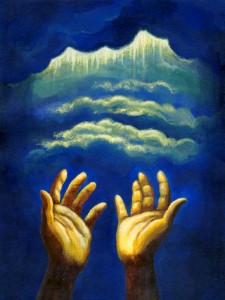We are living in a culture that is preoccupeid with death. Halloween is the devil’s high holy day that celebrates and promotes death and destruction. This culture of death is out to destroy marriages, childhood innocence, our economy, our churches, our biblical and our historical heritage, our preborn babies, our youth, God and anything else that is good and righteous. This video is not only about standing firm but also combating this culture of death with the light and hope of biblical truth.
Category Archives: Scripture
Blog Scripture Readings for 11-8 Through 11-14-15
Aside
THIS WEEK’S SCRIPTURE READINGS FOR STUDY AND DISCUSSION:
Parashat Toldot — Genesis 25:19 – 28:9
Haftarah — Malachi 1:1 – 2:7
Prophets — Judges 11:1 – 17:13
Writings — Psalms 35:1 – 40:17
Testimony — Matthew 22:1 – 25:30
Most of this week’s blog discussion points will be on these passages. If you have general comments or questions on the weekly Scripture readings not addressed in a blog post, here’s a place for you to post those. Just use the “leave a reply” link below.
The full “Read Through The Scriptures In A Year” schedule, broken down by each day, can be found on the right sidebar under “Helpful Links.” There are 4 sections of scripture to read each day. One each from the Torah, the Prophets, the Writings, and from the Testimony of Yeshua. Each week, the Torah and haftarah readings will follow the traditional one-year reading cycle.
Weekly Blog Scripture Readings for 11/8 through 11/14/15.
Woe be to a false religious and economic system that are in bed together!
Matthew 21:12, Temple of Elohim…money changers. With the same violence that Yeshua threw out those who loved money from YHVH’s temple, we must cleanse the temple of our spirits by expelling from our souls the love of money, which is the root of all evil (1 Tim 6:10).

At his second coming, Yeshua will destroy the fruitless, end times whore system of banking and religion.
In this event, Yeshua is coming against the rapacious banking system of the nation of Israel, which was centered around the temple, which was the storehouse of the nation’s wealth. This evil banking system continues to this day and is run by a cabal of global elitists who control the governments and economies of this world for their own benefit. Often the religious and banking systems are united at some level, since both are motivated by the love of money and power. At the highest levels, neither care for the welfare or well-being of the common man — especially the poor and helpless who have little power, wealth, voice and influence. At Yeshua’s second coming, he will suddenly come to his Continue reading
“Hosannah in the highest” — One Phrase With Many Prophetic Meanings
Matthew 21:9, Hosannah in the highest. The simple Hebrew phrase hoshana rabbah has more depth and spiritual significance than first meets the eye. Let’s explore it.
First of all, it was this phrase—hosanna in the highest—(Heb. hoshana rabbah) that the crowds of Jews exclaimed as Yeshua entered Jerusalem riding a colt in Matthew 21:9 (also Mark 11:9; Luke 19:38). This event has become known as Yeshua’s “Triumphal Entry.”
The phrase hoshana rabbah, in part, derives from Psalm 118:25, a psalm which is called the Great Hallel (Heb. meaning “praise”), and was the climax of a series of psalms that the priests would proclaim or sing from the temple in Jerusalem on various feast days including the Feast of Tabernacles.
Psalm 118 is a prophetic psalm, which speaks of the coming Messiah who was the hope of the Israelite people. The words of this psalm prophetically points to Yeshua the Messiah in every way. That’s why the crowds proclaimed “hoshana in the highest, ” at Yeshua’s entry into Jerusalem, for upon him, they had pinned their highest hopes of a Messianic figure who would deliverer them from their oppressors (in this case, the Romans).
The actual Hebrew words in Psalm 118:25 are ana YHVH hoshiah na, which can be translated as “I beg you YHVH save now,” (Green’s Interlinear), “Save now, I pray, O YHVH” (KJV), or “O [YHVH], please save us!” (The ArtScroll Stone Edition Tanach).
The phrase “Hosanna in the highest” was an added exclamation of the people, and is not Continue reading
What to do when your brother sins against you…
Matthew 18:15, When your brother sins. Yeshua says that when your brother sins against you, you‘re to follow certain protocols to correct him in effort to restore him to spiritual relationship. Many people read this verse to mean that when your brother offends you or hurts your feelings, you’re to go to him. This is not what Yeshua is saying here. He says, if your brother sins against you. By biblical definition, sin is the violation of the law or Torah of Elohim (1 John 3:4). Therefore, if your brother lies to you, steals from you, or sexually violates your wife, you are to go to him, and possibly the church leaders — not if your brother offends you (hurts your feelings) in word or in deed. In this case, Yeshua instructs us elsewhere that we’re to turn the other cheek, pray for our enemies, bless and not curse, and do good to them.
Below is a further discussion on this topic. (Written by Sandi Lawrence)
Have you heard someone say that they are claiming their Matthew 18 rights because they have been offended by this or that person? It’s actually quite common and is often what is taught as how to handle offenses between brothers.
What are our Matthew 18 rights that we keep wanting to invoke? Let’s look at this section that keeps getting called out…
Matthew 18:15-17 (NASB) says…
“If your brother sins, go and show him his fault in private; if he listens to you, you have won your brother. But if he does not listen to you, take one or two more with you, so that BY THE MOUTH OF TWO OR THREE WITNESSES EVERY FACT MAY BE CONFIRMED. If he refuses to listen to them, tell it to the church; and if he refuses to listen even to the church, let him be to you as a Gentile and a tax collector.”
What does it address? Does this address if you are offended? Or does it address what to do if your brother is sinning; that is, he is going against Torah? Let’s not forget that the Bible defines sin as the violation of the Torah (1 John 3:4).
There is a common misappropriation of this instruction that every time we perceive that our brother (or sister) has offended us that we are to go and confront our brother about it. As an extreme (my opinion) but a real-life example, in our own congregation a couple Continue reading
Prophetic Types and Shadows: A Quick Study on Isaac and Rebekah
There are many prophetic spiritual types and shadows to be found in the Torah that point forward prophetically to Yeshua the Messiah. A series of events in Isaac’s life beginning in Genesis 22 and culminating in chapter 24 provide us with some amazing antetypical glimpses into events that would surround the life of Yeshua the Messiah Continue reading
Deborah Was a Fiery Woman of YHVH
Haftorah Reading—Judges 4:4-5:31
The Torah and Haftorah portions for this week bear many similarities. In both pericopes, Israel was languishing under oppressive foreign powers, YHVH sent them a savior to deliver them and through miracles and against overwhelming odds, Israel defeated its oppressors and the nation was brought to a new spiritual level. Prophets were instrumental in both cases, and women were used of YHVH in the deliverance of his people. And finally, both scenarios climax in the production of a psalm of praise to YHVH for his mighty hand in setting his people free.
1 The story of Deborah often brings up the question concerning the role of women among YHVH’s people. Proponents of women in leadership roles point to Deborah as a champion to their cause. Those who decry any sort of women leadership blush when the example of Deborah is brought up and are often quick to add that she was a one-time exception to this rule. What is the truth as presented by Scripture? Please note the role of women in Scripture by reviewing the following examples as Batya Wootten points out in Continue reading



